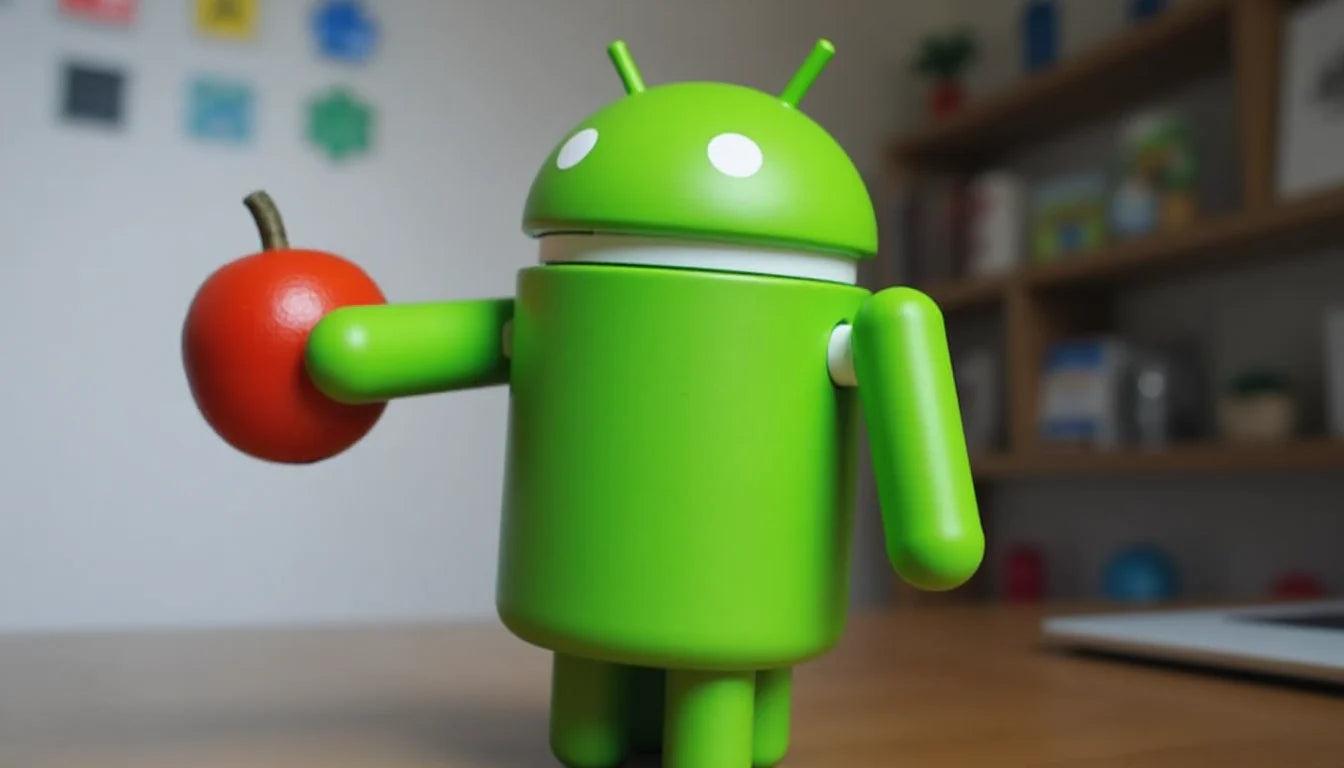As every year, the confirmation of the release of a new version of Android generates a wave of expectation and speculation. Google has announced that Android 16 will be available in June, marking the next step in the evolution of the world's most used mobile operating system. However, as a seasoned technology analyst, I've learned not to get carried away by the hype. hype Instead of blindly getting excited by Google's promises, I prefer to analyze the situation with a critical eye and ask myself: What new features will Android 16 really bring? How will it improve the real-world user experience? And what implications will this launch have for the Chilean market?
In this article, I'll dive into my analysis of Android 16, exploring potential new features, assessing their impact on performance, security, and privacy, and reflecting on how this update might affect Chilean users. Don't expect a simple feature list; here you'll find an in-depth analysis, with just the right amount of skepticism, focused on what really matters.
Beyond Cosmetic Novelties: Seeking Meaningful Innovation
Each new version of Android brings with it a series of aesthetic and functional changes. However, not all new features are created equal. Some are minor improvements that are barely noticeable in everyday use, while others can have a significant impact on the user experience.
In my opinion, the most important new features of Android 16 should focus on:
-
Artificial Intelligence (AI): AI has become a key part of Android , powering features like the Google Assistant, real-time translation, and computational photography. I expect Android 16 to bring new AI features that are even more useful and personalized.
-
Security and Privacy: Protecting personal data is a growing concern for smartphone users. I hope Android 16 offers new tools and options to control privacy and protect against security threats.
-
Performance and Energy Efficiency: Android must continue to improve performance and energy efficiency, especially on mid-range and low-end devices. Good battery management is essential to providing a satisfactory user experience.
-
Accessibility: Android should be accessible to all users, regardless of their abilities or disabilities. I hope Android 16 will incorporate new features and options to improve accessibility.
What I Hope (and Fear) for Android 16
Based on my experience and market trends, I have some expectations (and fears) about Android 16:
-
Battery Management Improvements: I hope Android 16 offers new tools for monitoring and optimizing battery consumption, allowing users to extend their phones' battery life.
-
A Smarter and More Proactive Google Assistant: Be able to anticipate user needs and offer help proactively.
-
New Security Features: To protect against phishing, malware, and other security threats.
-
Greater Control Over Privacy: Allowing users to decide what data they share with apps and Google .
-
A More Modern and Customizable Design: That it is consistent with the latest market trends.
On the other hand, I fear that Android 16:
-
Be Too Heavy and Consume Too Many Resources: Affecting the performance of older phones.
-
Incorporate Unnecessary and Complicated Functions: That only serve to confuse users.
-
Violate User Privacy: Collecting too much personal data without your consent.
-
Be Slow to Reach Devices: Due to the fragmentation of the Android ecosystem.

The Impact in Chile: A Transformative Update or a Simple Rehash?
The Chilean smartphone market is diverse and demanding. Chilean users value quality, innovation, and value for money. How will the new features of Android 16 resonate in this market?
In my opinion, the most important aspects for the Chilean user will be:
-
Performance: Android 16 should run smoothly and efficiently on a wide range of devices, including the mid- and low-end phones that are most popular in Chile.
-
Battery Life: Autonomy is a key factor for Chilean users, who often face long work days and limitations in charging infrastructure.
-
Security: Personal data security is a growing concern in Chile, and Android 16 must offer effective tools to protect user privacy.
If Android 16 manages to improve these aspects, it could have a significant impact on the Chilean market, offering an improved and more secure user experience. If not, users are likely to continue opting for alternatives that offer better value.
The Fragmentation Challenge: When Will I Get Android 16 on My Phone ?
One of Android's biggest problems is its fragmentation. Unlike iOS, where updates typically reach all compatible devices at the same time, the rollout of Android 16 will be gradual and depend on the make and model of the phone.
Google Pixel phones are likely to be the first to receive Android 16, followed by models from Samsung , Xiaomi , and other manufacturers. However, some phones could take months to receive the update, or even never receive it.
This fragmentation is frustrating for users and can lead to security and compatibility issues. I hope Google continues to work on solutions to speed up the update process and reduce the fragmentation of the Android ecosystem.
Realistic Expectations and a Call to Responsibility.
The release of Android 16 is a significant event for the world of mobile technology. While it's important to be excited about new features and improvements, it's also crucial to maintain a critical perspective and not get carried away by the hype. hype Android 16 has the potential to significantly improve the user experience, but it also poses significant challenges regarding privacy, security, and accessibility.
As users, we have a responsibility to stay informed about new Android 16 features, protect our privacy, and demand that manufacturers provide fast and secure updates. Only then can we fully realize Android's potential and build a more inclusive and equitable digital future.
What are you hoping for from Android 16? What features would you like to see implemented? Are you concerned about the fragmentation of the Android ecosystem? Share your thoughts in the comments.

